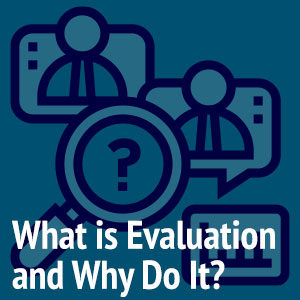 What is Privacy Good For?
What is Privacy Good For?
The right to privacy is a much-cherished value in America. As we noted in an earlier article, “Transparent as a Jellyfish? Why Privacy is Important” privacy is crucial to the development of a person’s autonomy and subjectivity. When privacy is reduced by surveillance or restrictive interference—either by governments or corporations—such interference may not just affect our social and political freedoms, but undermine the preconditions for the fundamental development and sustenance of the self.
Danial Solove, Professor of Law at George Washington University Law School, lists ten important reasons for privacy including: limiting the power of government and corporations over individuals; the need to establish important social boundaries; creating trust; and as a precondition for freedom of speech and thought. Solove also notes, “Privacy enables people to manage their reputations. How we are judged by others affects our opportunities, friendships, and overall well-being.” (See “Ten Reasons Why Privacy Matters” Danial Solove). Julie Cohen, in “What is Privacy For?” Harvard Law Review, Vol. 126, 2013 writes: “Privacy shelters dynamic, emergent subjectivity from the efforts of commercial and government actors to render individuals and communities fixed, transparent, and predictable. It protects the situated practices of boundary management through which self-definition and the capacity for self-reflection develop.”
Strains on Privacy
Privacy, of course, is under continual strain. In his recent article, “Uh-oh: Silicon Valley is building a Chinese-style social credit system,” (Fast Company, August 8, 2019) Mike Elgan notes that China is not alone in seeking to create a “social credit” system—a system that monitors and rewards/punishes citizen behavior.
China’s state-run system would seem to be extreme (e.g., it rewards and punishes for such things as failure to pay debts, excessive video gaming, criticizing the government, late payments, failing to sweep the sidewalk in front of your store or house, smoking or playing loud music on trains, jaywalking, etc. It also publishes lists of citizens’ social credit ratings, and uses public shaming as a means to enforce desired behavior.) Elgan notes that Silicon Valley has similar designs on monitoring and motivating what it deems as “desirable and undesirable” behavior. The outlines of an ever-evolving corporate-sponsored, technology-based “social credit” system now include:
- Life insurance companies can base premiums on what they find in your social media posts
- Airbnb—now has more than 6 million listings in its system, and the company can ban customers and limit their travel/accommodation choices. Airbnb can disable your account for life for any reason it chooses, and it reserves the right to not tell you the reason.
- PatronScan, an ID-reading service helps restaurants and bars to spot fake IDs—and troublemakers. The company maintains a list of objectionable customers which is designed to protect venues from people previously removed for “fighting, sexual assault, drugs, theft, and other bad behavior,” A “public” list is shared among all PatronScan customers.Under a new policy Uber announced in May: If your average rating is “significantly below average,” Uber will ban you from the service.
- WhatsApp is, in much of the world today, the main form of electronic communication. Users can be blocked if too many other users block you. Not being allowed to use WhatsApp in some countries is as punishing as not being allowed to use the telephone system in America.
The Consequences
While no one wants to endorse “bad behavior,” ceding the power to corporations and technology giants to determine which behavior counts as undesirable and punishable may not be the most just or democratic way to ensure societal norms and expectations. As Elgan observes, “The most disturbing attribute of a social credit system is not that it’s invasive, but that it’s extra-legal. Crimes are punished outside the legal system, which means no presumption of innocence, no legal representation, no judge, no jury, and often no appeal. In other words, it’s an alternative legal system where the accused have fewer rights.” Even more ominously, as Julie Cohen writes, “Conditions of diminished privacy shrink the capacity (of self government), because they impair both the capacity and the scope for the practice of citizenship. But a liberal democratic society cannot sustain itself without citizens who possess the capacity for democratic self-government. A society that permits the unchecked ascendancy of surveillance infrastructures cannot hope to remain a liberal democracy.”
Resources:
“Uh-oh: Silicon Valley is building a Chinese-style social credit system,” Mike Elgan , Fast Company, August 8, 2019.
“China has started ranking citizens with a creepy ‘social credit’ system — here’s what you can do wrong, and the embarrassing, demeaning ways they can punish you,” Alexandra Ma, Business Insider, Oct. 29, 2018.
“America Isn’t Far Off from China’s ‘Social Credit Score’” Anthony Davenport, Observer, February 19, 2018.
“How the West Got China’s Social Credit System Wrong,” Lousse Matsakis, Wired, July 29. 2019
“Ten Reasons Why Privacy Matters” Daniel Solove
“What Privacy Is For?” Julie Cohen, Harvard Law Review, Vol. 126, 2013
“The Spy in Your Wallet: Credit Cards Have a Privacy Problem,” Geoffrey A. Fowler, The Washington Post, August 26, 2019.



